Ethics
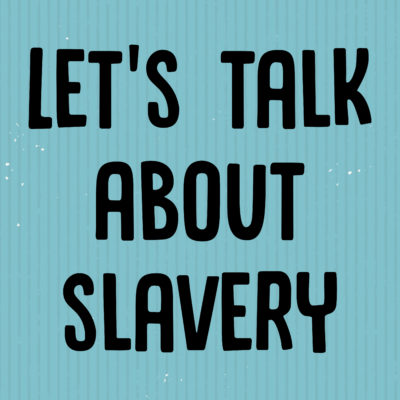
The mainstream chocolate industry is built on poverty; a pyramid scheme with millions of farmers at the bottom and a handful of powerful companies running the industry at the top.
“The earnings model of a chocolate company is farmer poverty. Full stop. As long as the farmer is paying the price for our cheap chocolate, there’s no way it can be sustainable” (Antoine Fountain, Managing Director of VOICE Network, a watchdog for the cocoa sector).
Around 70% of the world’s cocoa is grown in a few West African countries, predominantly Ghana and Ivory Coast, with cocoa farmers in these countries earning on average less than $1 a day1. The conditions are so shocking that the cocoa industry in West Africa has been likened to modern day slavery.
A recent report estimates the number of children working illegally on cocoa farms in these countries to be around 1.56 million2. Many may not necessarily be slaves; it’s often the case that their parents can’t afford to send them to school, so they’re made to work on the family farm.
However, part of that figure will be made up of children who have been trafficked from neighbouring countries to work as slaves on cocoa plantations – many of which have endured torture. It’s very difficult to know the exact figure of children who fall into this category, but some estimate the number to be at least 30,000. The reality is likely to be far higher.
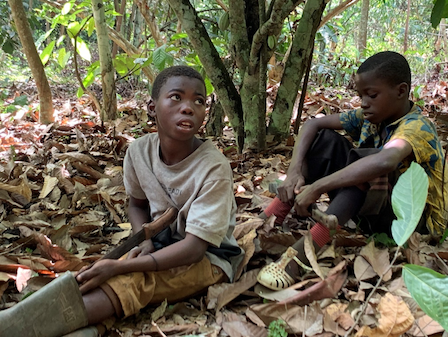
Part of history?
Slavery was abolished in the UK in 1833 and in the US in 1865. In 2015, the UK also brought in the Modern Slavery Act to deal with slavery in the modern context.
However, the mainstream consumer is likely to be unaware that if they were to purchase a popular chocolate bar in a supermarket today, there’s a real chance they will have unwittingly bought a product made with child slavery in the supply chain.
Surely, this can’t really be happening - are we just exaggerating?
In 2001, former BBC foreign correspondent Humphrey Hawksley stumbled across slavery in cocoa plantations in the Ivory Coast whilst researching another story. He encountered children who had been trafficked to plantations bearing scars from torture, and was astonished to discover that the cocoa from these plantations was being shipped to big chocolate companies in Europe3.
When Humphry returned to the UK and confronted these companies, he was met with complete denial that slavery was taking place in their supply chains.
In the same year, news broke of mass exploitation in the cocoa industry, leading to huge moral outrage. The chocolate industry promised to eradicate child labour in their supply chains by 2005, bringing about the Harkin-Engel Protocol.
When Humphrey returned to The Ivory Coast in 2006 and again in 2011 to observe whether changes were being made, he found no evidence of progress. As with his first visit, he found children working in appalling conditions, earning no income. The only conclusion that made sense, and seemingly still does, is that the chocolate industry simply “doesn’t care”3.
With the industry failing to take action following the 2001 Harkin-Engel Protocol, they gave themselves four further extensions to tackle child slavery. The latest extension and its terms outline that the industry is to reduce their use of child labour by 70% by the year 2025.
“They admit they’re doing it, and they’ve given themselves legal permission… to continue to do it until they get around to stopping. In the meantime, they must be making millions from the cheap cocoa”, says Terry Collingsworth, former Executive Director of International Rights Advocates during a conference on the subject earlier this year4.

So we know this is going on, but why is it allowed to happen?
It’s simple – money. The global chocolate industry is worth an estimated $100 billion4, with the biggest companies making huge profits, yet cocoa farmers continue to live in abject poverty, earning less than $1 per day.
Despite being an industry with such a complex supply chain, there are just a handful of powerful players at the top who have control over the market.
The structure of the supply chain keeps the farmers in a position where they’re easily exploited; farmers don’t earn enough money to make improvements to infrastructure so are dependent on middlemen and ‘pisteurs’. These are men with vehicles able to navigate the terrible road conditions in order to transport cocoa beans from the farms to collection points. Farmers are reliant on the pisteurs to get their cocoa to the collection points, but it means the farmers don’t have the luxury of choosing to whom they sell their cocoa beans, leaving them in a vulnerable position with no bargaining power5.
So, what’s the antidote to poverty?
Pay more, right? But to a cocoa farmer, this isn’t an option. The only solution left for them is to plant more cocoa trees as more trees means more cocoa to sell and potential to earn more money. For years farmers have been pushing the boundaries of their farms into protected forests, resulting in mass deforestation of the native trees; in the Ivory Coast, 85% of forests have been lost since 19906.
Due to a lack of governance and infrastructure in these areas, it’s near impossible for ethical farming to be enforced, making it easier for children to be exploited and used as slaves.
There are undoubtedly a range of measures that could help improve the lives of farmers and their families, but it’s difficult to imagine a more impactful change than simply paying a higher price for cocoa beans. This could bring a real living wage to cocoa farmers who could then afford to hire workers, and there would be no need to plant trees in protected areas either.
What about fair-trade certifications?
Buying a chocolate bar with a fair-trade logo is supposedly a guarantee that the product has been produced without exploitation in the supply chain. While this is enforced to an extent, a fair-trade logo sadly doesn’t guarantee 100% ethical trade.
However, fair trade certifications do still have a place. Ombar regard them not as a set of standards to aspire to, but as a starting point, and we always aim to exceed the required standards.
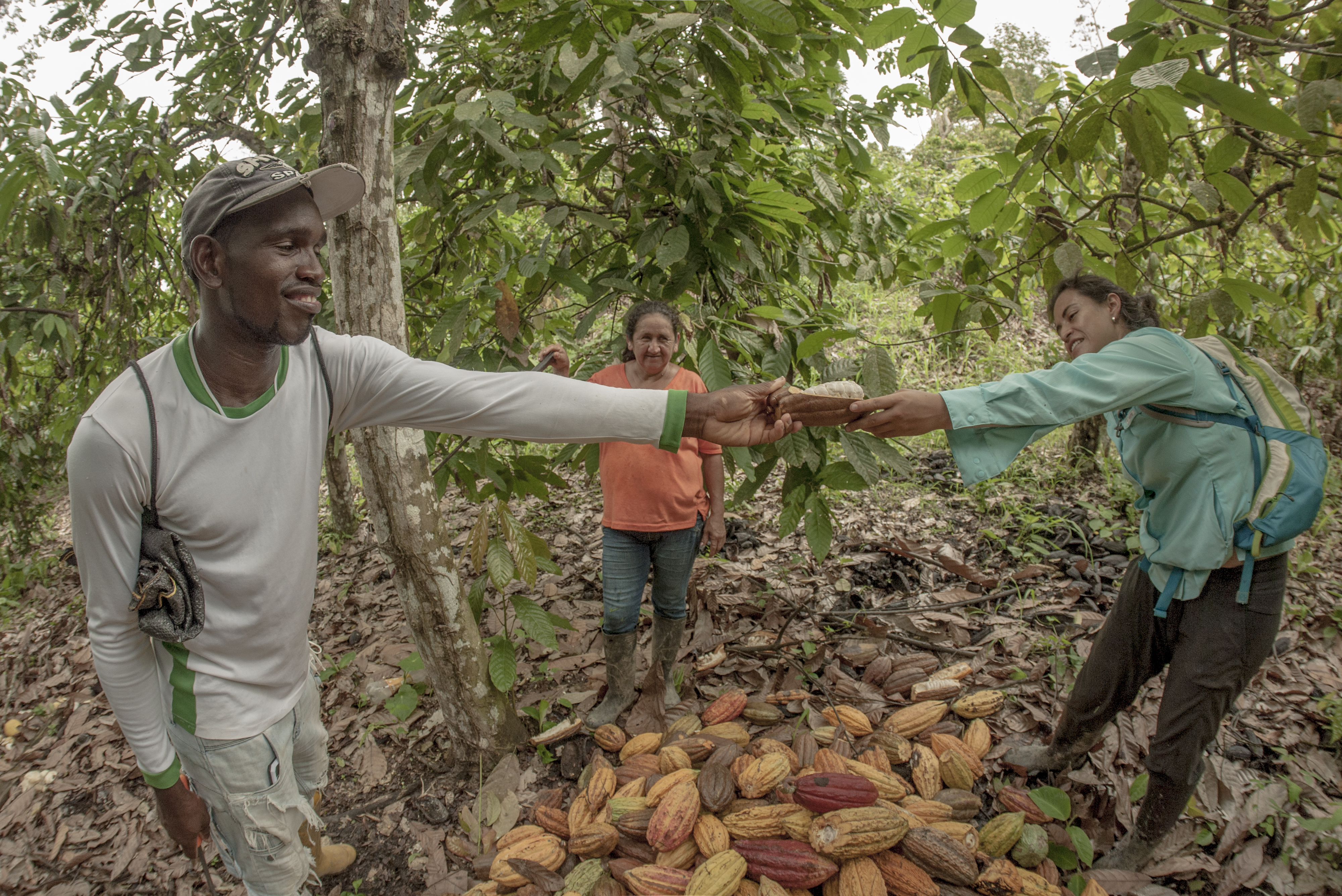
Why aren’t governments dealing with this?
There’s no doubt that governments, UK included, are aware of these issues. Yet as it currently stands, there are no sanctions in Europe against companies engaging and profiting from cocoa from plantations where child slavery exists.
Being responsible generally costs more, but when your competitor is getting their cocoa for a lower price, it’s too tempting for big players to continue sourcing cheap cocoa in order to maintain high profit margins.
What about Ombar?
Since we started in 2007, we have been working with producers only in Ecuador. While we are happy to say that slavery in the cocoa industry in South America does not generally exist, we can never become complacent. We have a team member based in Ecuador, Paola, who visits our farms to ensure the working conditions of the farmers exceeds standards and they receive fair pay. We are currently in the process of putting increased measures in place for monitoring the farms we work with. We are also continuously gathering information about cocoa farmers’ wages and how the premium prices we pay filters down to these farmers.
We go over and above when it comes to ensuring our farmers receive a good price for cocoa, paying 42% more than the commodity price and the fair trade recommended price. You can see a visual representation of this here.
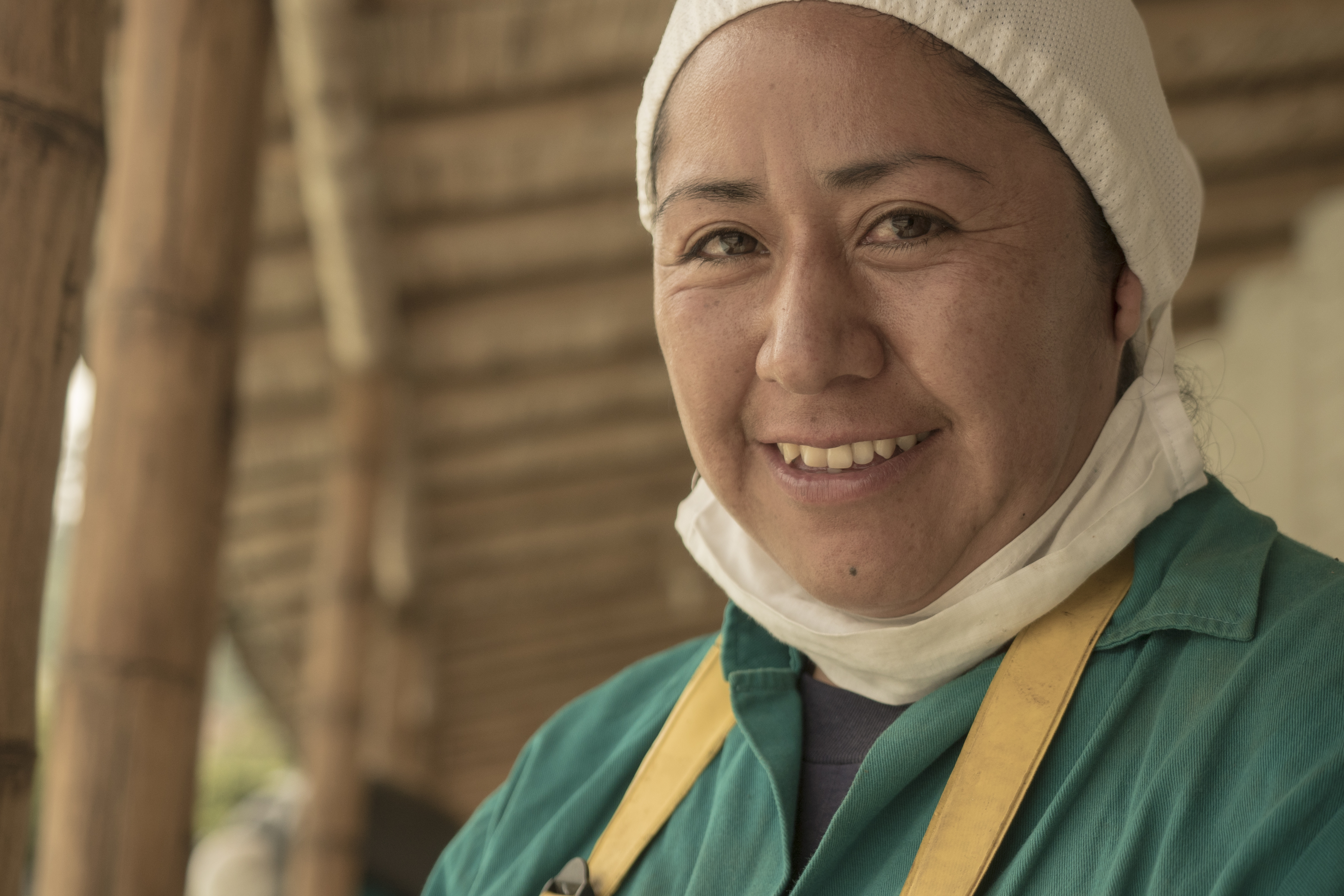
The light at the end of the tunnel
Where in the past, Ghana and the Ivory Coast have been competitors, there are now alliances being formed between the two. Both countries’ governments have increased the minimum price for cocoa beans, known as the farmgate price, by 28% and 21% respectively to help combat poverty. While this is a start, we have to acknowledge that this is nowhere near enough and needs to increase significantly.
There are more coops being formed to help farmers strengthen their bargaining power, and to set and maintain payment standards.
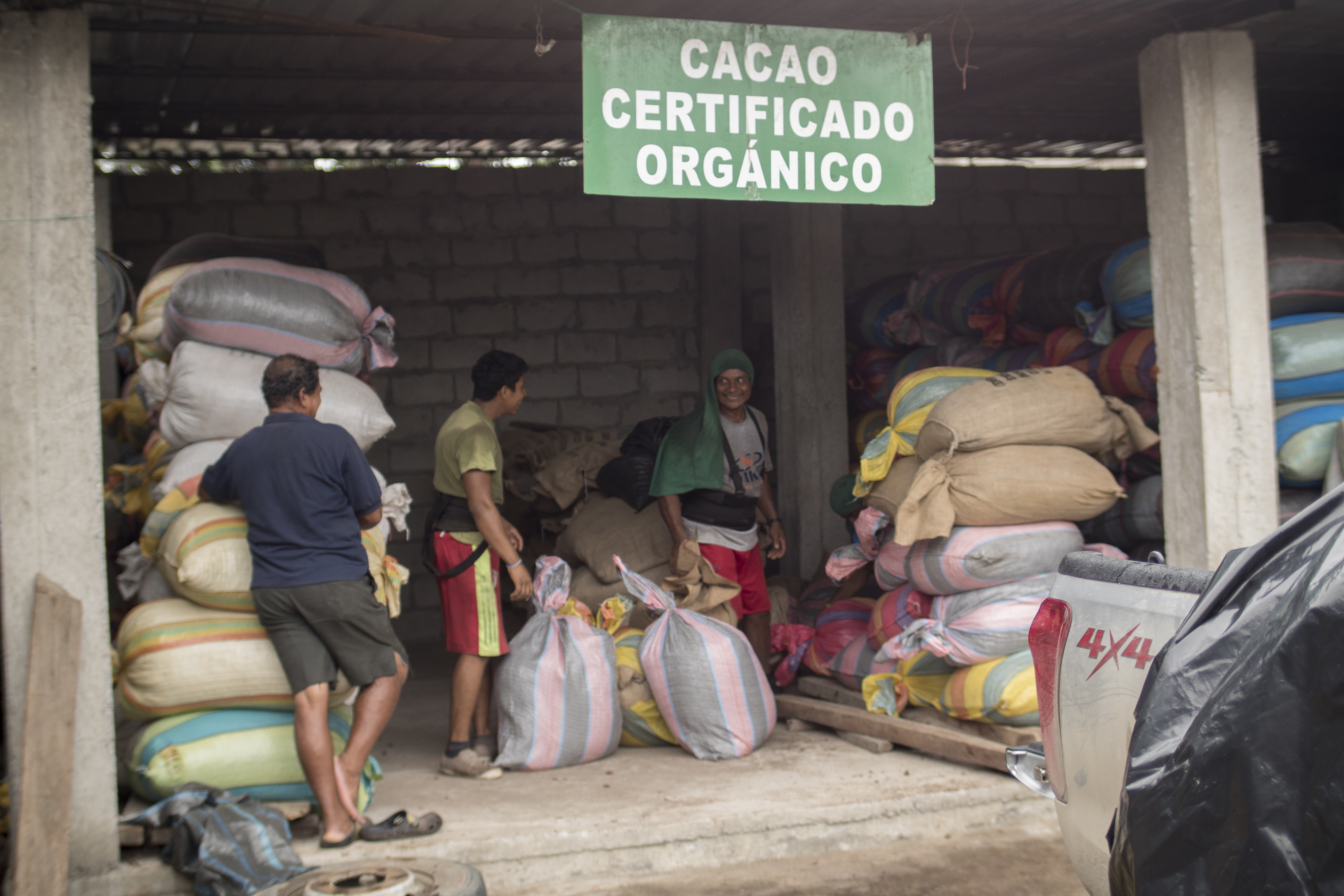
There are organisations emerging who are aiming to educate the public and encourage people to buy from ethical chocolate producers. Slave Free Chocolate have compiled a list of slave-free brands – we recommend taking a look!
https://www.slavefreechocolate.org/ethical-chocolate-companies
Here are some other useful resources for those of you who’d like broaden your understanding of the supply chain issues in chocolate industry:
- A recent conference held by Slave Free Chocolate: Ethical Egg Hunt - in search of slavery-free chocolate: https://www.youtube.com/watch?v=Melvw-GrLuY
- ‘Cocoa Diaries’ on the World Cocoa Foundation’s website is a brilliant resource, giving a voice to individuals at the base of the supply chain
- Netflix: Rotten, Season 2 Episode 5: Bitter Chocolate
- Bitter Chocolate | DW Documentary: https://www.youtube.com/watch?v=pRwMoGPTEEM
- A helpful diagram from Ethical Consumer showing how the cocoa sourcing policies of various brands stack up, at a glance: https://www.instagram.com/p/CN...
This is a difficult and complex subject, so we welcome your questions and comments, if you’d like to discuss anything you’ve read with our team please get in touch. At Ombar we want to be held accountable for our practices, which we are continuously trying to improve upon.
We’d also like to encourage you to share this article with friends and family – more people need to know about it! Educating those around us is a small but massively important step in the right direction.
Finally, if you’d like to, we’d really appreciate if you could complete this short survey for us – it’s completely anonymous and only 4 questions. It will give us a clearer picture of your knowledge of this subject. Many thanks!
https://www.surveymonkey.co.uk/r/6NTW9YL
References
- https://www.confectionerynews.com/Article/2017/02/22/Ivorian-cocoa-farmers-earn-less-than-1-a-day-Barry-Callebaut-study#
- https://www.norc.org/Research/Projects/Pages/assessing-progress-in-reducing-child-labor-in-cocoa-growing-areas-of-c%C3%B4te-d%E2%80%99ivoire-and-ghana.aspx
- Humphrey Hawksley speaking during conference on slavery in chocolate (April 2021): https://www.youtube.com/watch?v=Melvw-GrLuY
- Terry Collingsworth speaking during conference on slavery in chocolate (April 2021): https://www.youtube.com/watch?v=Melvw-GrLuY
- Netflix: Rotten, Season 2 Episode 5: Bitter Chocolate
- 6. Mighty Earth report: https://www.mightyearth.org/wp-content/uploads/2017/09/chocolates_dark_secret_english_web.pdf ; Netflix: Rotten, Season 2 Episode 5: Bitter Chocolate

